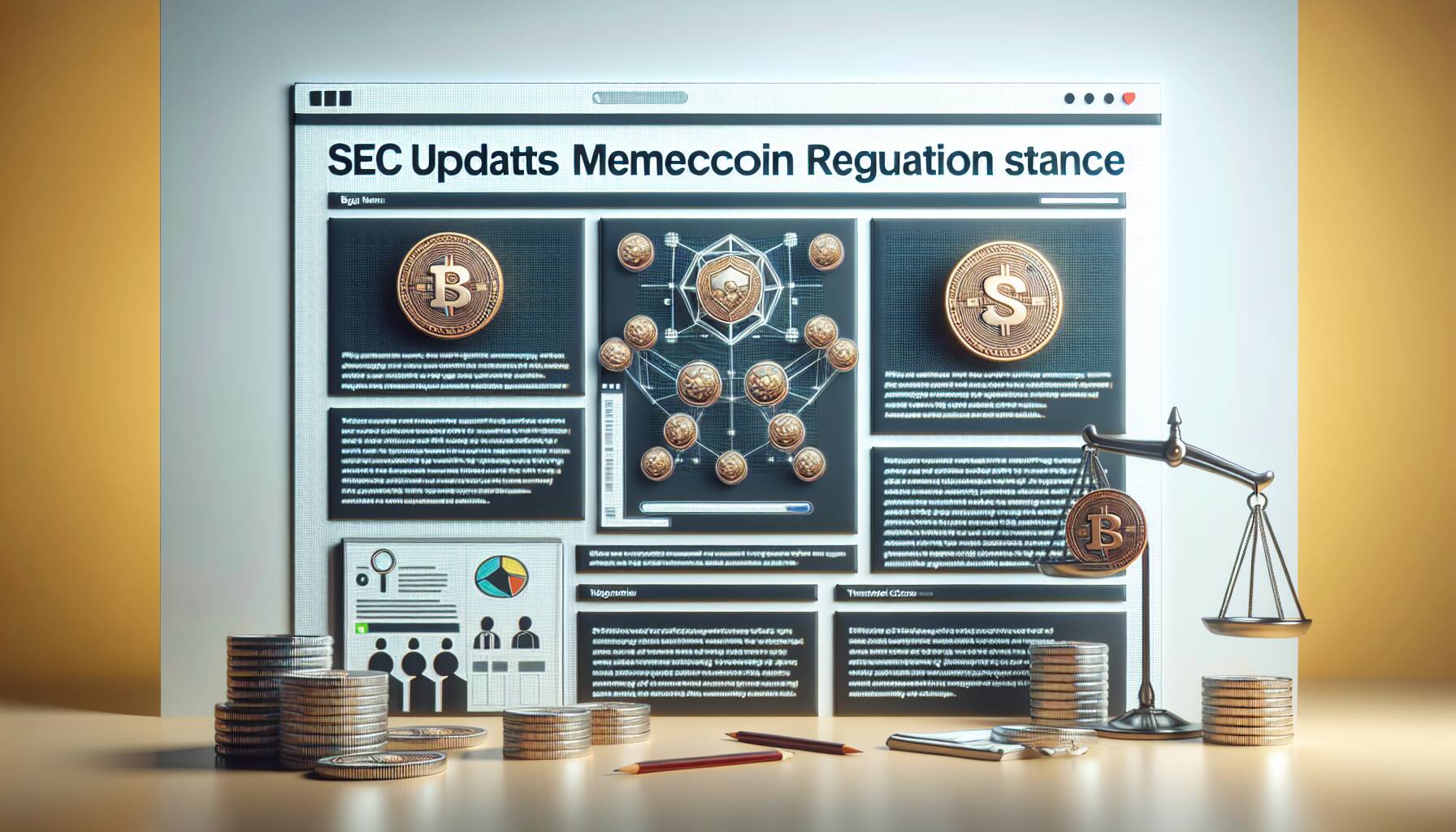The landscape of cryptocurrency regulation in the United States has received a significant update, particularly regarding a popular subset of digital assets known as memecoins. In a recent announcement from the U.S. Securities and Exchange Commission (SEC), the agency clarified its stance, characterizing memecoins as more akin to collectibles than to securities. This declaration, laid out in a statement from the SEC’s corporate finance division, indicates that due to their lack of substantial use or functionality, memecoins do not meet the criteria set by the Howey Test, which is used to determine whether a transaction constitutes an investment contract.
This position aligns with previous remarks made by Commissioner Hester Peirce, the head of the SEC’s newly established Crypto Task Force. During a recent interview, Peirce highlighted that many memecoins currently trading in the market operate outside the SEC’s purview. She emphasized the importance of personal accountability in investment decisions, stating that investors should be aware of the potential risks of purchasing assets lacking a clear long-term value proposition.
“In this country, people generally have a right to make decisions for themselves, but the counterpart to that… is the equally wonderful American expectation that people must decide for themselves,” Peirce remarked.
While the SEC’s statement does not represent formal regulation, such staff interpretations often carry weight within the industry, as companies and investors tend to closely monitor the SEC’s pronouncements for guidance. However, it’s worth noting that the agency retains the right to use its enforcement powers if memecoins are found to be used in a manner that circumvents existing securities laws. With this nuanced stance, the SEC aims to strike a balance between investor protection and the burgeoning world of digital assets.
This latest development could change the regulatory dynamics for memecoins significantly, though enthusiasts and investors should remain aware of the potential for future SEC actions impacting this burgeoning segment of the cryptocurrency market.

The SEC’s Stance on Memecoins
The U.S. Securities and Exchange Commission (SEC) has made a significant announcement regarding memecoins, which could have a considerable impact on investors and the crypto market. Here are the key points:
- Definition of Memecoins:
- Memecoins are crypto assets inspired by internet memes, seeking to create an enthusiastic online community.
- They are considered more like collectibles than securities.
- SEC’s Jurisdiction:
- Memecoins do not meet the definition of a security under the Howey Test.
- This places them outside the SEC’s jurisdiction for regulation.
- Investor Responsibilities:
- Commissioner Hester Peirce emphasizes that investors should conduct their own due diligence when purchasing memecoins.
- Investors should not expect government intervention or bailouts if investments result in losses.
- Potential SEC Enforcement:
- The SEC reserves the right to take action if memecoins are used to evade federal securities laws.
- Each transaction will be evaluated based on its economic realities.
- Impact of Staff Statements:
- Though not formal regulations, SEC staff statements influence industry practices and can affect market dynamics.
- The SEC’s previous guidance, like Staff Accounting Bulletin No. 121, caused significant market turmoil.
This shift in regulatory stance could lead to a more speculative environment for investors in memecoins, emphasizing personal responsibility and the potential risks associated with investing in assets lacking clear value propositions. Understanding these developments can help readers make more informed decisions in the evolving landscape of cryptocurrency investments.
SEC’s New Stance on Memecoins: Implications and Industry Reactions
The U.S. Securities and Exchange Commission (SEC) has taken a significant step back from regulating memecoins, categorizing them more as collectibles than securities. This shift, spearheaded by Commissioner Hester Peirce and her Crypto Task Force, marks a fundamental change in the SEC’s approach to the rapidly evolving cryptocurrency landscape. In contrast to traditional cryptocurrencies like Bitcoin and Ethereum, which have stringent regulatory oversight, memecoins lack the characteristics that would label them as securities under the Howey Test.
Competitive Advantages: This recent decision could benefit memecoin enthusiasts and creators by fostering a less regulated environment where innovation can thrive without the fear of stringent regulatory repercussions. This development may also encourage new projects within the memecoin space, as aspiring developers and entrepreneurs feel empowered to initiate and promote their tokens without the looming threat of SEC oversight. Additionally, investors looking for a less conventional asset class might find this news appealing, as it opens up the memecoin market for more speculative trading activities.
Competitive Disadvantages: However, the SEC’s non-regulatory stance may not be universally beneficial. Investors and consumers may face significant risks due to the speculative nature of memecoins, especially in scenarios where they lack intrinsic value. As stated, buyers of such tokens should be cautious about the potential for drastic price drops. The SEC’s warning about the implications of purchasing virtually worthless products serves as a sobering reminder that not all investments lead to windfalls. For serious investors seeking stability, this could deter interest in the broader cryptocurrency market, which now could be perceived as a haven for high-risk ventures.
The impact of the SEC’s statement could create a dual-edged sword for both investors and developers. On one hand, the absence of strict regulations may invite more casual participants to explore memecoins, potentially invigorating the market. On the other hand, it could also result in a surge of scams and poorly conceived projects, leading to investor losses and tarnishing the already fragile reputation of the cryptocurrency sector. As the SEC maintains the ability to intervene if memecoins are utilized to circumvent securities laws, there is still a lingering uncertainty about the future regulatory landscape surrounding this niche within the crypto ecosystem.
Ultimately, those who stand to gain from this development include casual investors who relish the unpredictability of memecoins as well as developers looking to capitalize on the booming interest. Conversely, prospective buyers should tread carefully, as the SEC’s hands-off policy could inadvertently open the door to unscrupulous practices, creating potential pitfalls in their investment journey.














